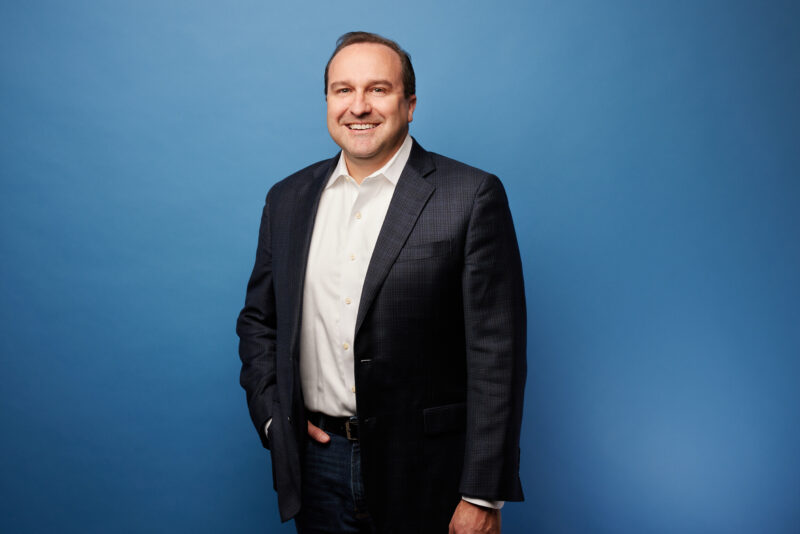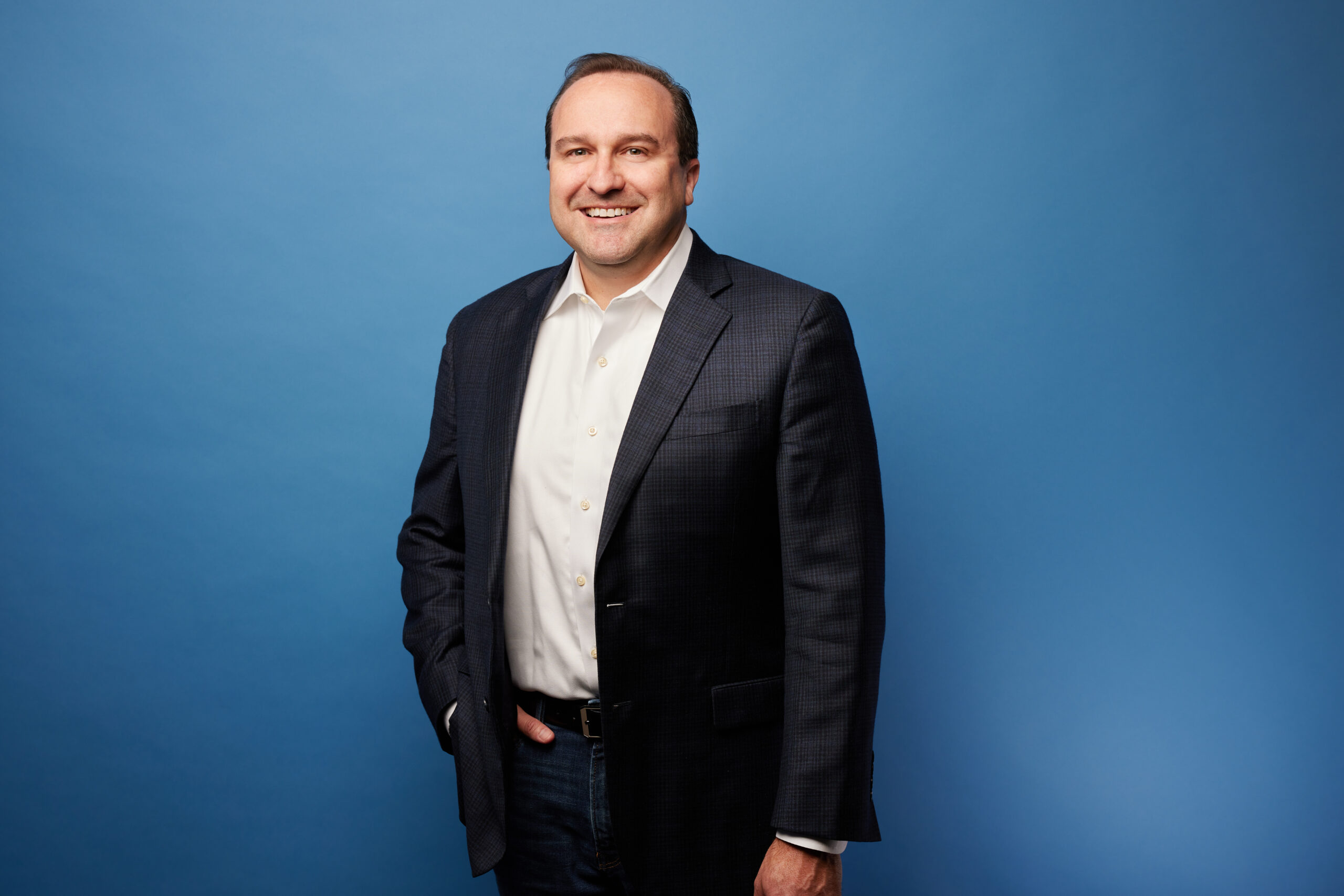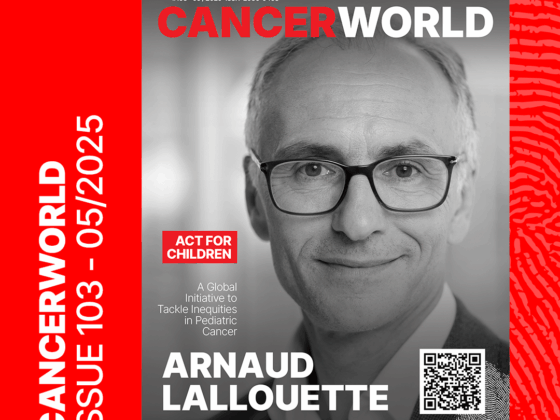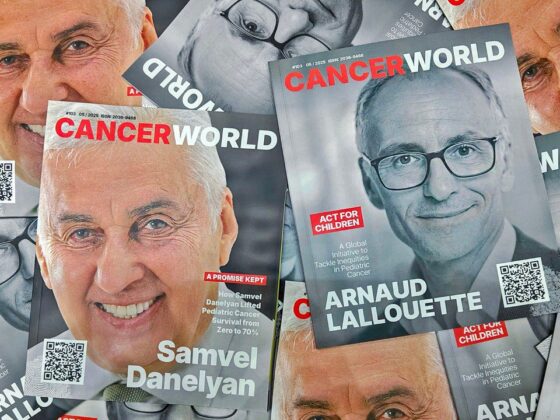I grew up around a lot of physicians,” begins Adrian Gottschalk, President and CEO of Foghorn Therapeutics, a biotech company redefining how we understand and treat complex diseases by targeting the chromatin regulatory system. “My late father was a professor of orthopedic surgery at the medical school in Dallas, Texas. Science and medicine were always around me. I even studied biochemistry as an undergrad and was accepted to medical school.”
But life, as it often does, nudged him down an unexpected path.
“I turned down med school in the 90s. I was concerned about the future of medicine in the U.S. at the time, thinking it might become too regulated. Instead, I went into IT consulting with Price Waterhouse—and that’s where I met my wife. So, I’d say it worked out.”
Even in software, he found echoes of biology. “Programming felt similar to biochemistry. Both are about systems, feedback loops, and regulation. It’s all design and logic.”
But the work—mainly in upstream oil and gas—left him unfulfilled.
“It didn’t feel like I was helping people. I needed purpose. So I applied to graduate school in New England and did a dual degree in business and science. That decision was about reconnecting with what I loved: science that serves humanity.”
The Biogen Years: Where Principles Were Forged
That journey led him to Biogen, where he would spend the next 13 years, rising through leadership roles and absorbing lessons that would shape the rest of his career.
“I interned at Biogen in 2002 while in business school. I remember asking Bill Anderson—who’s now the CEO of Bayer—if there was a formal training program. He said no. ‘This place is more like choose-your-own-adventure,’ he told me. That resonated.”
At Biogen, Gottschalk says, he didn’t just build a career—he found a platform for growth.
“It was big enough to have resources, but small enough to carve your own path. I worked with great people and learned some critical lessons.”
He pauses, then counts them off.
“One: It takes a long time to build something great—but a poor culture or bad leadership can destroy it fast. Two: Your people are your only sustainable advantage. Science matters, but people make it work. Three: Follow the data—always. Biotech companies must be relentlessly data-driven. Four: Plan clinical trials properly. Don’t cut corners. Define your patient population clearly. Five: Plan for obsolescence, even when you’re winning. I remember prepping for the post-patent future of Tecfidera while we were still launching it. Six: Stay humble. The moment you become arrogant in this business, you lose sight of what matters. Seven: It’s not a solo mission. Success in biotech always takes a team.”
A New Chapter: Building Foghorn from the Ground Up
Leaving Biogen wasn’t easy—but necessary.
“I could see the company struggling, mostly due to cultural shifts. I wanted to be part of building something better, from the ground up. That’s when I came across Foghorn Therapeutics.”
It was the science that caught his attention first.
“I remember reading about chromatin regulation and thinking, ‘If this holds true, it could transform not just oncology, but other disease areas too.’ We’re talking about fundamental biology—gene expression, timing, sequencing. It’s like cellular air traffic control.”
He lights up, drawing a metaphor.
“Imagine planes needing exact timing and coordination to land safely. Now imagine your genome needing the same coordination to express the right genes at the right time. If that system fails, you get disease. What we’re doing at Foghorn is restoring that coordination.”
At the time, Foghorn was a 12-person startup.
“I wanted a place where I could help build the culture from day one. You can’t reshape culture at a 5,000-person company. But here, we could set the tone. That was exciting.”
Chromatin Regulation: Cracking Biology’s Toughest Code
What makes Foghorn’s work so revolutionary is its focus on the chromatin regulatory system—a field both fundamental and previously untouchable.
“These protein complexes we work on—like SWI/SNF—are enormous. The BAF complex, for instance, is over 1.5 megadaltons. That’s like trying to drug a battleship.”
So why now?
“Historically, no one had the tools to study these complexes in context. Many of the proteins are 90% similar to their family members—paralogues—which makes selective targeting hard.”
Foghorn changed that.
“Our scientific founders industrialized how to produce, purify, and assay these massive complexes. That gave us an edge. We built the capabilities from scratch—recombinant protein production, functional assays, structural biology. It’s a platform built on rigor.”
He emphasizes one word: context.
“Context is everything. You can’t understand gene regulation in fragments. You need to study it in its native form—its real biological context. That’s how we’ve made breakthroughs.”
Protein degradation has also been a key part of their strategy.
“Once we mastered studying the system, we could design therapeutics that degrade malfunctioning proteins. That’s opened up a whole new world.”
Leading Through Service: A Philosophy Rooted in Humility
Gottschalk’s leadership style is grounded in a concept he learned early: noblesse oblige.
“In college, I had to write an essay about it—this idea that those in power have a duty to serve. That shaped how I lead: servant leadership. My role isn’t to be the most important person. It’s to enable the team.”
He outlines four core principles:
“Integrity. Trust. Accountability. Responsibility. The last two are different—accountability is your job; responsibility is helping others even when it’s not.”
When asked how he balances short-term execution with long-term strategy, he rejects the idea of a trade-off.
“They’re inextricably linked. Strategy drives tactics. But tactics teach you if the strategy still makes sense. It’s a constant feedback loop.”
Managing Risk, Sustaining Ambition
In a volatile biotech landscape, Gottschalk is acutely aware of the need for balance.
“Ambition will always outpace resources—especially in small biotech. So we focus hard on what actually creates value, and we stop what doesn’t. You have to be disciplined.”
Foghorn is financially sound with runway into 2027, but he still sees partnerships as key.
“We share risk. It means sharing upside too. But that’s how you survive and scale. Strategic alliances are critical.”
Culture of Innovation: Making Failure Safe
So how do you build a culture where scientists dare to fail?
“By creating psychological safety,” he says firmly. “We’ve worked hard on that here. Anyone can challenge anyone else. It’s not hierarchical. It’s about ideas.”
Failure isn’t just tolerated—it’s essential.
“When you work on cutting-edge science, most things won’t work. But you can’t punish people for failing on bold ideas. That’s how innovation dies.”
He mentions the book No Rules Rules from Netflix.
“If you hire the right people, you don’t need a lot of rules. But structure still matters. It’s about balance.”
Academic Foundations: The DNA of Innovation
Gottschalk’s educational journey shaped his worldview.
“Texas A&M gave me technical rigor—my foundation in biochemistry. Then I did the dual degree at MIT Sloan and the Harvard-MIT Biomedical Enterprise Program. That’s where everything clicked.”
The program’s focus on integration—science, medicine, and business—was formative.
“Biotech needs all three. Great science that doesn’t reach patients is wasted. Great business with no scientific rigor is meaningless. That program gave me a common language across all disciplines.”
He credits MIT’s culture of innovation for sharpening his entrepreneurial instincts.
“I studied entrepreneurship and thought I’d go to a small company. But a professor, Stanley Lapidus—the founder of Exact Sciences—told me, ‘Go to a big company first. Learn what works and what doesn’t.’ That’s why I joined Biogen.”
If I Could Tell My Younger Self…
Looking back, what advice would he give his younger self?
“Take time to enjoy the journey. I’m very action-oriented. I hit a milestone and immediately move to the next thing. I’d tell myself to stop and smell the roses. Celebrate more.”
On Mentors and Role Models
“My father was my first mentor,” Gottschalk says, emotion flickering behind his words. “I learned so much from him.”
He also names Faheem Hasnain, a former Biogen leader, as a key influence.
“I learned how to lead with compassion from Faheem. He showed me that leadership is about lifting people up.”
Two retired U.S. Marine Corps Top Gun pilots—David Robinson and Patrick Guinee—also shaped his leadership approach.
“People assume the military is rigid. These guys are the opposite: creative, team-first, deeply reflective. They deeply influenced how I think about leadership.”
Another mentor is Dan Mangelsdorf, a leadership coach and friend.
“All the good in me, they helped shape. The rest? That’s on me.”
Books That Changed His Thinking
He shares four titles that left a lasting impression:
- The Fearless Organization by Amy Edmondson – “Psychological safety in action.”
- The Culture Code by Daniel Coyle – “A blueprint for great organizational cultures.”
- Extreme Ownership by Jocko Willink and Leif Babin – “Before blaming others, look in the mirror.”
Creativity, Inc. by Ed Catmull – “How Pixar built a culture of fearless innovation.”
And Who Should We Interview Next?
Gottschalk pauses, then smiles.
“This might be a long shot, but I’d be curious to hear from Vivek Ramaswamy. Say what you will about his politics—he’s built multiple biotech companies. That could be a fascinating story.”
A One-Sentence Bio
Finally, how would he describe himself?
“Caring, committed, focused,” he says. “Adrian Gottschalk is an experienced biotech leader who puts people first and mission before self in an attempt to make a difference for his fellow human beings.”
After spending time with him, it’s hard to argue with that.













